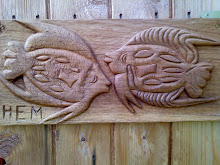British Reprisals – Fr. Hackett
The following is an account by Fr. William Hackett (1878-1954), an Irish Jesuit who lived in Limerick during the War of Independence, it it he describes seeing the aftermath of the British Reprisals carried out in revenge for the The Rineen Ambush 22nd Sept. 1920 “In September some English Quakers visited Limerick and I was asked to show them some specimens of English brutality. Lord Monteagle gave me a list of many creameries that had been destroyed in the previous months. I was arranging to go round these when I met S.M. O’Mara and he said ‘Terrible rumours are coming on from Clare. Why not go there?’
We hired a large motor and visited Ennistymon. We saw several houses that had just been destroyed by fire. The houses were still smouldering and there was an air of gloom over the town. The neighbours were preparing to bury a couple of victims one of whom had been shot and then thrown into the fire. [Note 1]
As we were leaving, we heard the roar of a motor and a few loud shots and a big lorry full of scowling police and two coffins whizzed by. ‘No man’s life is worth an hour’s purchase in Clare today’ said the driver of our car. He was right. We next came to a scene of indescribable misery. The pretty little village of Lahinch had been gutted on Wednesday night (we were there on Friday). Water taps were still running, houses still smouldering, and the people were in terror. No one knew what was going to happen next. Everyone seemed dazed at the magnitude of the disaster. A large body of troops had poured into the town and without giving the people time to dress or even leave the houses had proceeded to sprinkle the houses with petrol and to throw in incendiary bombs. They proceeded with such expedition—they had to carry destruction over a large area that night—that Mrs. Hanley of Limerick had to jump from the second storey to escape being burned to death. She broke her two legs. Her husband made the same leap but escaped with a shaking.
In another house hard by one of the inhabitants was actually burned to death. They showed us his body on the Friday. It was simply a trunk. Arms were burned away and legs were gone. The people had taken the remains out of the house where the tragedy had happened and had wrapped it in linen very neatly but then in their panic they had placed it in an outhouse—a kind of pigsty. They were seemingly afraid that if the police or Military knew of the existence of this body, there would have been further trouble…I took many photos in Lahinch but I could not bring myself to photo the terrible corpse. [Note 2] I heard this story afterwards.
There had been an ambush a few days before in which the police had suffered heavily, the last of MacCurtain’s murderers, it is said, being killed in the scrap. The Volunteers were mobilised to defend Lahinch etc. They had had a terrible time for some time before and the leaders in particular were suffering from strain. They had taken too much drink and so when the approach of the military was announced there was no one to give orders. Hence, it came about that one of the leaders, unable to escape, was burned to death. Eyewitnesses told us of one man who jumped from a burning house and was shot and bayonetted when he reached the ground. I learned afterwards that some Officers motored out of Ennis ‘to see the fun’ to use their own phrase, and had a narrow escape from their own crew who mistook them in the dusk.
While still in Lahinch a lorry of English troops all standing with rifles at the ready crawled through the village simply bristling with rifles and bayonets. You felt that a single boo would have set blood flowing in streams.
We next visited Milltown Malbay and there too houses were still burning. My English Friends were ashamed of their nation. …
Raids and shootings were the order of the day from this on. You were never surprised to hear firing at night. After some time when you found that no tragedies were reported the following day you got accustomed and you simply turned over and sought further repose. It was not always so and when the recurrent tragedies happened it set your nerves on edge for a time. The raids were worse because there was no immunity. You felt safe inside a house from a bullet but you had no such protection from a raid.”

No comments:
Post a Comment
Everyone has a right to be heard.
Everyone has a right to an opinion.
We are all stakeholders, even the silent among us.
No single person has all the answers but together we might answer some of the questions.
Remember, this mortal life is but the blink of an eye in the realms of eternity.